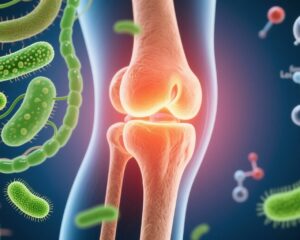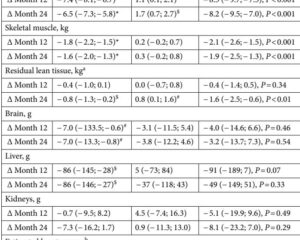Study Background and Disease Burden
Autism spectrum disorder (ASD) encompasses a complex group of neurodevelopmental conditions characterized by social communication deficits, repetitive behaviors, and cognitive impairments. Beyond neurological symptomatology, mounting evidence implicates systemic immune dysregulation in ASD pathophysiology. Clinically, many children with ASD exhibit abnormal cytokine profiles and evidence of chronic low-grade inflammation, which may contribute to neuroinflammation and behavioral manifestations. Conventional management predominantly focuses on behavioral and pharmacological approaches addressing core symptoms, yet immune dysfunction remains an underexplored therapeutic target. Emerging research supports the hypothesis that interventions targeting gut-brain axis modulation and systemic inflammation may improve immune-related dysfunction in ASD. Nutritional strategies, including anti-inflammatory diets and probiotic supplementation, represent promising non-pharmacological modalities to modulate immune responses and intestinal health. Against this backdrop, the NeuroGutPlus diet—a comprehensive anti-inflammatory dietary protocol—has been formulated to address gut integrity, chronic inflammation, and mitochondrial function, which are all implicated in ASD. Simultaneously, probiotic formulations comprising multiple strains of Lactobacillus and Bifidobacterium may also reconfigure gut microbial composition and innate immune signaling.
Study Design
In a 12-week randomized controlled nutritional trial, 30 children diagnosed with ASD (ages and severity not further specified) and 12 neurotypical controls were enrolled. Participants with ASD were randomized into three groups: (1) NeuroGutPlus anti-inflammatory diet, (2) multi-strain probiotic supplementation, and (3) no intervention. The NeuroGutPlus diet was designed as nutritionally complete and anti-inflammatory, restricting gluten, fermentable oligosaccharides, disaccharides, monosaccharides and polyols (FODMAPs), casein, and artificial additives, while emphasizing high consumption of omega-3 fatty acids, polyphenols, and fermentable fibers. The probiotic supplementation consisted of 16 strains predominantly from the Lactobacillus and Bifidobacterium genera.
Pre- and post-intervention plasma levels of 20 cytokines and chemokines were quantified using multiplex Luminex immunoassays to assess systemic immune status. Principal component analysis (PCA) facilitated the evaluation of overall immune profile alterations attributable to interventions.
Key Findings
The NeuroGutPlus diet group exhibited a significant reduction in interferon-gamma (IFN-γ) levels (p = 0.0090), a proinflammatory cytokine frequently elevated in ASD and linked to neuroinflammatory processes. Moreover, PCA demonstrated a stabilizing clustering effect on immune profiles post-diet, indicating a broad immunoregulatory shift. In contrast, probiotic supplementation was associated with a significant increase in interleukin 8 (IL-8) (+66.6 pg/mL; p = 0.0350) and macrophage inflammatory protein-1 beta (MIP-1β) (+74.5 pg/mL; p = 0.0100), chemokines involved in innate immune cell recruitment. Interestingly, probiotic use also led to a decrease in IFN-γ (p = 0.0070), suggesting some modulation of inflammatory pathways. Collectively, eight out of eleven measured biomarkers showed significant differences post-intervention between groups, underscoring the distinct immunomodulatory effects of diet versus probiotics.
These findings highlight that while both interventions modulate the immune milieu, the NeuroGutPlus diet exerts broader and more consistent downregulation of inflammatory cytokines, potentially reflecting improvements in gut barrier integrity, mitigation of mitochondrial dysfunction, and systemic inflammation. Probiotic effects appear more selective, tending to reconfigure innate immune chemokine signaling rather than globally attenuating proinflammatory cytokines.
Expert Commentary
Given the complex interplay between gastrointestinal health, systemic immunity, and neurodevelopment in ASD, these results provide encouraging translational insight into dietary management as adjunctive therapy. The reduction of IFN-γ by the NeuroGutPlus diet aligns biologically with alleviation of chronic inflammatory signaling circuits implicated in ASD. Enhanced IL-8 and MIP-1β with probiotics may indicate activation of innate immune mechanisms that could reshape microbial-immune crosstalk. However, the relatively small sample size and the lack of behavioral outcome measures limit clinical extrapolation.
Further mechanistic studies are warranted to elucidate how the integration of omega-3 fatty acids, polyphenols, and fermentable fibers synergistically restores gut mucosal homeostasis and mitochondrial function. Multi-strain probiotics, although beneficial, may require optimization in strain composition or dosing to achieve comparable immunoregulatory breadth. Current guidelines do not yet formally endorse dietary modification as standard ASD treatment, but this emerging evidence supports personalized nutrition as a promising, low-risk intervention to complement behavioral therapies. Clinicians should consider immune biomarker monitoring to tailor interventions and assess response.
Conclusion
This controlled trial demonstrates that a structured anti-inflammatory diet (NeuroGutPlus) exerts broader and more stable immunoregulatory effects than multi-strain probiotic supplementation in children with ASD. The findings underscore the relevance of targeting immune dysregulation via precision dietary strategies to mitigate systemic inflammation and improve gut-brain axis function. Anti-inflammatory diet interventions may represent a scalable, non-pharmacological adjunct to conventional management of ASD, warranting larger trials assessing clinical and neurobehavioral outcomes in parallel with biomarker modulation. Probiotics remain a valuable but potentially more selective immunomodulatory tool in this context. Ultimately, integrated nutritional approaches hold promise to address the multifaceted immune disturbances contributing to ASD pathogenesis and symptomatology.
References
Naranjo-Galvis CA, Trejos-Gallego DM, Correa-Salazar C, et al. Anti-Inflammatory Diet and Probiotic Supplementation as Strategies to Modulate Immune Dysregulation in Autism Spectrum Disorder. Nutrients. 2025;17(16):2664. doi:10.3390/nu17162664
Rose S, Melnyk S, Pavliv O, et al. Evidence of oxidative damage and inflammation associated with low glutathione redox status in the autism brain. Transl Psychiatry. 2012;2(7):e134. doi:10.1038/tp.2012.60
Hsiao EY. Gastrointestinal issues in autism spectrum disorder. Harvard Rev Psychiatry. 2014;22(2):104-111. doi:10.1097/HRP.0000000000000039
Kang DW, Adams JB, Coleman DM, et al. Microbiota Transfer Therapy alters gut ecosystem and improves gastrointestinal and autism symptoms: An open-label study. Microbiome. 2017;5(1):10. doi:10.1186/s40168-016-0225-7
Karakula-Juchnowicz H, Pienkos E, Janas-Kozik M, Chrobak AA. The Role of Gut Microbiota and Diet in Neuropsychiatric Disorders. Nutrients. 2021;13(1):7. doi:10.3390/nu13010007


